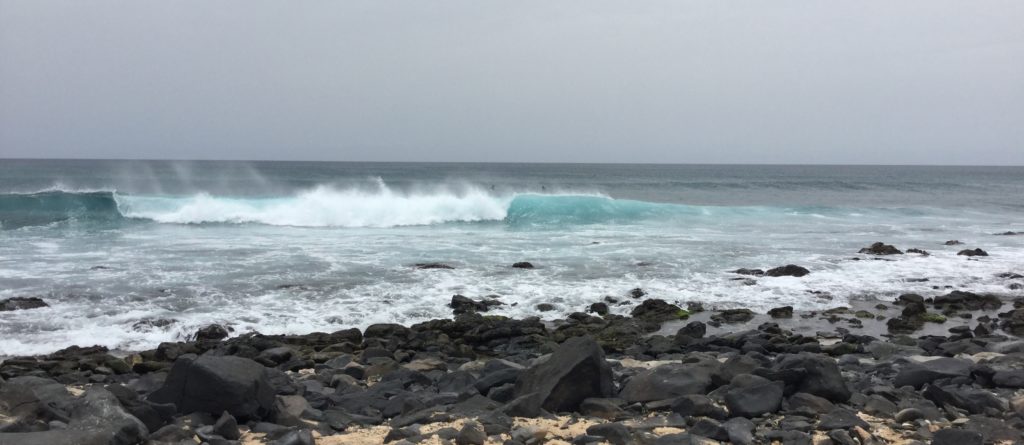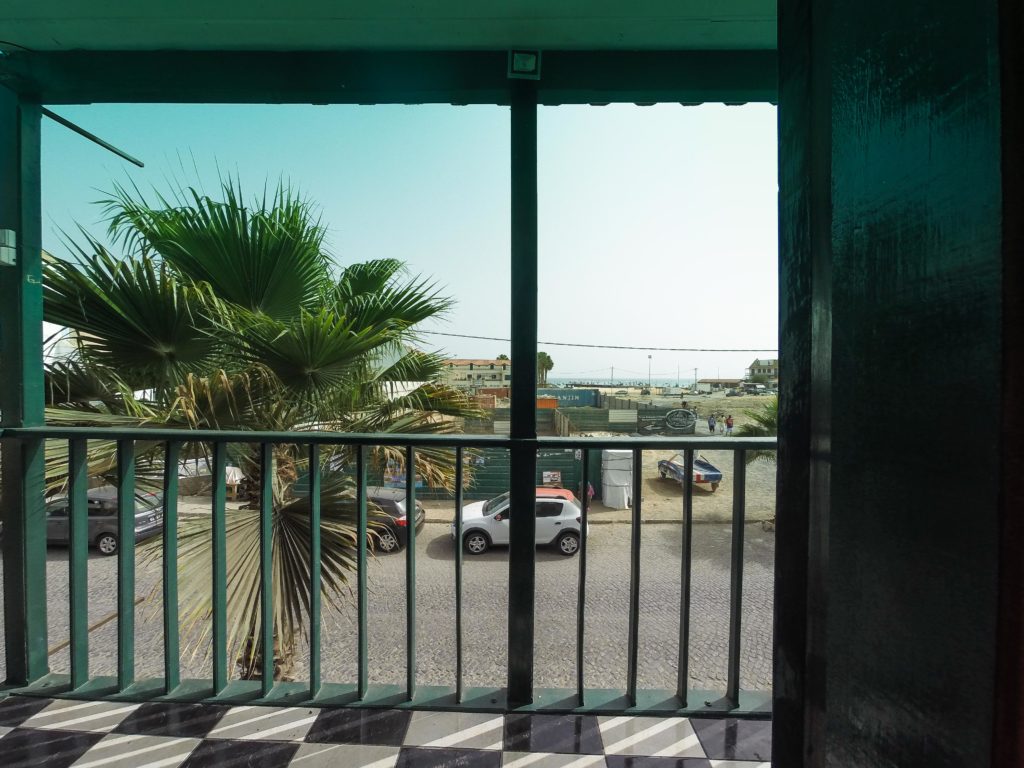
read and listen!
[huge_it_gallery id=”6″]

After dinner Grzech et al decided to play some music. And what music it was! Some time ago, when Grzech made a ‘One World’ record with World Orchestra I thought nothing better could ever be composed. Wrong! The music he composed and played on the island was an explosion of energy that went into stratosphere. Five concerts, five explosion of energy, a feast of music performed by genuine, passionate artists.
[huge_it_gallery id=”8″]
Ok, time for a brief diatribe about the island itself. Cabo Verde is a volcanic island with completely infertile soil. Whatever soil there is it’s nothing more than rusty dust covering the rocks spewed by a volcano eons ago. But surprise, surprise, if you plant a palm tree and water it will thrive like crazy. The only water is desalinated, nevertheless around the resorts there are lawns and fabulous creepers but basically no other plants grow there as few inhabitants can afford to pay for the water necessary to nurture greenery. The beach is covered in golden sand and the crystal clear water dazzles with emerald hues and beckons the locals to surf on the waves.
The only road will take you from one end of the island to the other in 40 minutes, and you will never loose sight of the other end either. In breadth, it is even more diminutive, but there is a beach for kite and windsurfing. Private cars are practically non-existent, the common mode of transportation is a taxi. Wherever you go the fare will be 2 Euros, 3 at night, and 13 to the airport. Even if you do not want a taxi, it will sneak behind your back and rumble invitingly. We practiced a special pose of I-do-not-wish-to-get –a-lift to be able to go for a walk in peace.
Our day had a simple rhythm: breakfast, beach or a trip to the interior, dinner at 5 pm in the club and music till wee hours. The musicians looked for fellow companions in the street and there were quite a few of them there, most eager to perform with our masters. It was like a festival- the people are open, warm and friendly, they are the descendants of the Portuguese who populated the island in 15 century and brought some Africans to work there as well. A handsome nation speaking Portuguese, Creole and some English. As the soil on the island is poor and infertile, the beaches are the jewels attracting the tourists and providing employment in resorts. A bit of industrial and agricultural activity can be found on other islands, mostly in Santiago, the capital of Cabo Verde Islands. The inhabitants travel from island to island by plane or by boat but it’s not easily done. The plane is a bit too pricey for them and the waves on the sea are huge not to mention that the distance between the islands is 200-400 miles.
[huge_it_gallery id=”13″]
Interior
The weather, however, is great all year round even if the attractions are few: the beach, a few bars and restaurants in the main street, surfboarding and kite surfing, quad trips into the interior. From a stony beach hidden in red dust tourists can wade into the water and look for sharks. Rubber boots borrowed from a local surf on their feet, mobiles ready to snap pictures in one hand, shorts pulled up to keep them from getting wet in the other (a senseless precaution as sooner or later a wave will drench them up to their necks). A salt bath in the crater of a volcano, where Grzech gave a concert during the first festival, is another attraction. The water is so salt saturated it is impossible to submerge completely but it does have health boosting properties. We went there in a rented quad and arrived caked with dust, plus the clothes were beyond redemption and qualified solely for the trash can.
Tuna
Another important thing is tuna. On the only jetty on the island a fish market is held daily. Colourful, wooden boats come to the jetty every few minutes and unload fish: tuna, one meter in length, some scale covered monsters, dorada and some kind of small, pretty red fish. On the jetty people wearing colourful clothes, men, women and children, busily clean and fillet the fish. The customers come and buy the fish by wheelbarrow to take it to restaurants. On the island there is no animal husbandry, not even a chicken farm, so fish is the staple of the diet. There is a supermarket selling meat, but I guess it was the same stuff like anywhere else in the world, so we stuck to fish
There isn’t much more to say about the island itself but there are quite a few stories to be told about the people. Andrea, called the ‘princess of the island’, runs a shop with organic goods and teaches local girls and women traditional dance. The dance involves energetic hip swinging while the head remains motionless. Actually, the head is kept so still you could place a drink on top of it and it would sit there peacefully while they kept dancing. We met some local women who accompany the dancers on drums and some musicians, cooks, sculptors and a tailor who turned out to be a musician too (we all had some clothes made in his workshop and Ania played a baby concert with him). In a small restaurant with a TV set we tried moray while watching the Portuguese team play football, we savoured a pancake for breakfast that took two hours coming and indulged in grog-daily!
But without the two Grzechs and the musicians neither the tuna nor the exotic island would have been perfect. It is them and their music that have turned this trip into a metaphysical experience. I believe such moments are worth putting everything on hold, follow the urge to do something spontaneous and immerse yourself in a different reality.
[huge_it_gallery id=”7″]
We were here:
Grzech Piotrowski, saksofon i rdzeń, zarzewie tego grania, Polska
Rasm Almashan, głos, Jemen
Ania Wandtke, skrzypce, Polska
Sebastian Wypych, bas, Polska
Adeb Chamoun, rytmy, Syria
Staszek Słowiński, skrzypce, Polska
Ghostman, głos, Polska
and
Galernicy69 as groupies: Małgosia & Wojtek Żółtowscy

